Research Advisory Committee
The Stroke Foundation Research Advisory Committee is a board sub-committee that advises on the strategy underpinning the Research Program and advises on activities arising from the implementation of the program, reviews submissions for grants for the Stroke Foundation Research Program, and advises on requests for Stroke Foundation participation or endorsement of external research programs and projects including partnership grants.
The Research Advisory Committee is comprised of experienced researchers with an established track record in research on stroke and/or related fields, along with one consumer and one carer representative.
-
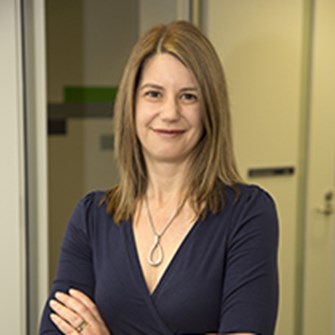
Professor Coralie English
Non-executive Director representing interests of Research and Chair of Research Advisory Committee
Professor Coralie English is a physiotherapist and an experienced stroke clinical trialist. She leads a team of researchers within the Heart and Stroke Program, Hunter Medical Research Institute and teaches into the Physiotherapy Program at the University of Newcastle.Professor English’s research career began in 2000,…Read more Read lessProfessor Coralie English is a physiotherapist and an experienced stroke clinical trialist. She leads a team of researchers within the Heart and Stroke Program, Hunter Medical Research Institute and teaches into the Physiotherapy Program at the University of Newcastle.
Professor English’s research career began in 2000, when she undertook a PhD at the University of South Australia. Prof English’s professional network extends to national and international collaborations and professional committees. -
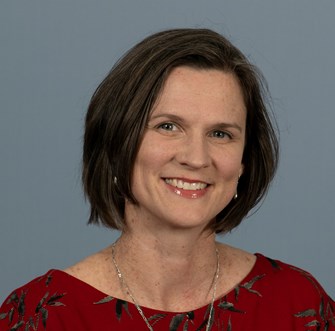
Associate Professor Alyna Turner
PhD
A/Prof Alyna Turner, PhD, is an endorsed clinical psychologist, and Senior Lecturer and Deputy Director of TRIALS and the Clinical Trials and Innovations theme at the Institute for Innovations in Mental and Physical Health And Clinical Translation (IMPACT) at the School of Medicine, Deakin University.…Read more Read lessA/Prof Alyna Turner, PhD, is an endorsed clinical psychologist, and Senior Lecturer and Deputy Director of TRIALS and the Clinical Trials and Innovations theme at the Institute for Innovations in Mental and Physical Health And Clinical Translation (IMPACT) at the School of Medicine, Deakin University. Having worked clinically in psychiatry, cardiopulmonary rehabilitation, and Liaison Psychiatry settings, A/Prof Turner’s research focuses on mental health and co-occurring conditions, spanning stroke, heart disease, health risk behaviours, psychotic illness, substance misuse (smoking, alcohol and methamphetamine dependence), depression, and anxiety.
A/Prof Turner brings extensive experience in clinical trials of both pharmacological and psychosocial/service treatments. A/Prof Turner has had over 100 papers accepted or published in peer-reviewed journals and has received over $23.5 million in research funding, including as CI on four NHMRC project grants, one MRFF, and the Million Minds Mission funded adult clinical trial network, MAGNET. -
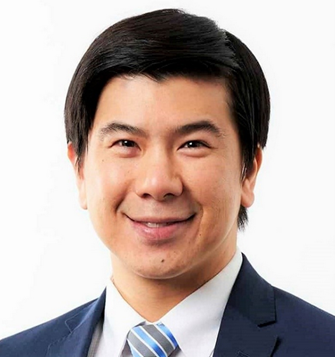
Dr Felix Ng
Dr Felix Ng is a stroke neurologist at the Royal Melbourne Hospital, Austin Hospital and the Melbourne Mobile Stroke Unit, the first custom-built specialist ambulance vehicle in the southern hemisphere equipped with a built-in CT scanner for rapid stroke treatment. He is actively engaged in…Read more Read lessDr Felix Ng is a stroke neurologist at the Royal Melbourne Hospital, Austin Hospital and the Melbourne Mobile Stroke Unit, the first custom-built specialist ambulance vehicle in the southern hemisphere equipped with a built-in CT scanner for rapid stroke treatment. He is actively engaged in regional stroke care through the Victorian Stroke Telemedicine service that provides 24-7 emergency stroke advises to emergency departments at regional and rural hospitals, and co-leads the BUILDS (“Bridging the Urban and regional Divide in Stroke care”) investigator-led initiative that provides stroke specialist tele-consultation to stroke inpatients in regional Victoria.
Felix is an NHMRC Emerging Leader Senior Research Fellow at the University of Melbourne with a research interest in novel stroke treatments, post-stroke complications, and systems-of-care. He currently leads several national multicentre interdisciplinary projects in partnership with Stroke Foundation on understanding how brain recovers from stroke and developing more effective acute treatment to reduce brain injury through basic science research, clinical advanced imaging studies and large-scale clinical trials.
-
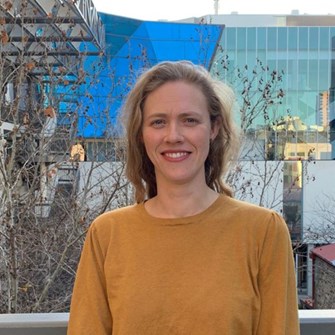
Dr Katharine Brown
Katharine Brown is a postdoctoral research fellow in the Indigenous Cardiovascular Research program at the Telethon Kids Institute. She is a non-Indigenous woman living and working on Kaurna country. Katharine’s research draws on her experiences in advocacy, policy and translational research to respond to the…Read more Read lessKatharine Brown is a postdoctoral research fellow in the Indigenous Cardiovascular Research program at the Telethon Kids Institute. She is a non-Indigenous woman living and working on Kaurna country.
Katharine’s research draws on her experiences in advocacy, policy and translational research to respond to the disparities in cardiovascular health and disease experienced by Aboriginal and Torres Strait Islander communities. She uses a broad range of research skills and methods. Katharine is motivated to increase understanding and awareness of Aboriginal and Torres Strait Islander understanding of health and wellbeing to enhance provision of supports and care in this population.
-
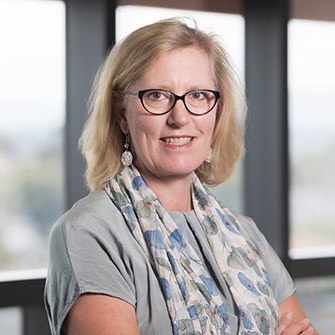
Professor Monique Kilkenny
PhD, MPH Grad Dip Epidemiol & Biostat B App Sci (MRA)
Professor Monique Kilkenny is a National Heart Foundation Future Leader and Senior Research Fellow at Monash University. Prof Kilkenny is a health services researcher and experienced epidemiologist with a background in health information management. Prof Kilkenny is the Head of the National Stroke Data Linkage…Read more Read lessProfessor Monique Kilkenny is a National Heart Foundation Future Leader and Senior Research Fellow at Monash University. Prof Kilkenny is a health services researcher and experienced epidemiologist with a background in health information management. Prof Kilkenny is the Head of the National Stroke Data Linkage Program at Monash University, and the projects she leads are essential to investigating quality of care provided to patients with stroke and are the cornerstones of informing the implementation of interventions to improve healthcare and patient outcomes.
Nationally, Prof Kilkenny is a leader in the field of stroke in the use of linked data and undertaking research on hospital performance, clinical quality registries and health promotion. Prof Kilkenny collaborations include researchers, industry and end users (i.e. Stroke Foundation, Victorian government, Queensland government). She has contributed to the evaluation of several programs (StrokeSafe and Know your numbers) for the Stroke Foundation related to health promotion, self-management and risk factor monitoring.
-
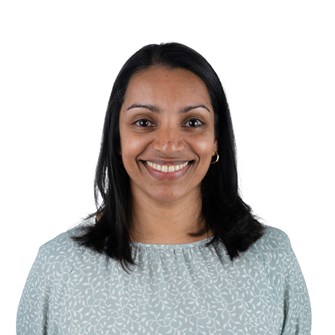
Dr Samantha Siyambalapitiya
BSc, BSpPath (Hons I), PhD, CPSP, SFHEA
Dr Samantha Siyambalapitiya is a speech pathologist and Program Director of the Master of Speech Pathology at Griffith University. Samantha has around 20 years experience as a clinician, tertiary educator and researcher. She is a second-generation migrant who grew up in a bilingual household. Samantha…Read more Read lessDr Samantha Siyambalapitiya is a speech pathologist and Program Director of the Master of Speech Pathology at Griffith University. Samantha has around 20 years experience as a clinician, tertiary educator and researcher. She is a second-generation migrant who grew up in a bilingual household. Samantha leads a program of research exploring how to improve culturally responsive practice with people from diverse cultural and linguistic backgrounds. This includes leading funded projects, supervising doctoral candidates and providing peer review for numerous journals regarding cultural and linguistic issues. She has extensive experience teaching speech pathology students about aphasia (acquired language disorder), including bilingual aphasia. Samantha recently contributed to the development of the Speech Pathology Australia position statement and clinical guidelines relating to culturally responsive speech pathology services. She is the founder and leader of Sympatico Research Group (Vision: “Integrating Culture and Language with Health and Wellbeing”).
-

Saran Chamberlain
After suffering a stroke in 2013 at the age of 38, Saran Chamberlain is a passionate advocate for stroke survivors within her home state of South Australia and at a national level. Before the stroke, Saran was managing an international software company, travelling once a…Read more Read lessAfter suffering a stroke in 2013 at the age of 38, Saran Chamberlain is a passionate advocate for stroke survivors within her home state of South Australia and at a national level. Before the stroke, Saran was managing an international software company, travelling once a month and loving life. In one brief moment her life was turned upside down.
Saran currently works in several Research Projects giving her lived experience to improve lives of survivors of trauma and is a member the Stroke Community of Practice in South Australia. Beyond these roles, Saran is involved in many advocacy activities as well as Support Coordination for people touched by stroke. Saran enjoys sharing her experience with health professional students as they put theory into practice, through her involvement in student workshops. She knows from her own experience with NDIS there is a need for compassion, empathy and direction in this field.
Through her own experience, Saran knows the journey after stroke can be long and isolating for young stroke survivors. She strives for increased awareness of young stroke, to ensure young stroke survivors are connected and have the supports they need to make their journey that little bit easier.
-
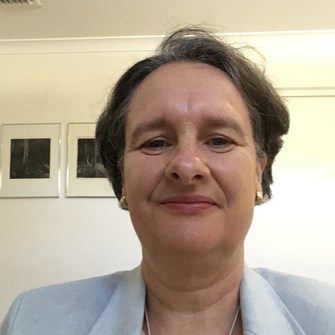
Dr Julia Tresidder
Dr Julia Tresidder specialises in research strategy, impact reporting and evidence-based policy development. She combines her professional knowledge with her lived experience supporting her partner in his stroke recovery to contribute to the Research Advisory Committee. Julia’s experience includes positions at research agencies such as…Read more Read lessDr Julia Tresidder specialises in research strategy, impact reporting and evidence-based policy development. She combines her professional knowledge with her lived experience supporting her partner in his stroke recovery to contribute to the Research Advisory Committee.
Julia’s experience includes positions at research agencies such as CSIRO and NHMRC where she developed methods to report on research impact. Julia represented health portfolio agencies on the ABS health data advisory committee and managed national reporting on health care safety and quality and on population level health risk factors. Julia has managed start up teams creating new services and programs, including the development of strategy and investment planning for an innovation and commercialisation grant program. Most recently Julia managed the establishment of a First Nations policy team in the Higher Education area at the Department of Education.
Prior to her work in the Commonwealth, Julia managed research relating to risk behaviour at the School of Public Health at the University of Sydney where she completed her PhD in 2003. She used survey methods to document risk behaviours among disadvantaged adolescents and developed innovative health promotion resources to reach disadvantaged groups.
The excellent health practitioners and services that have supported her partner, including a clinical trial in falls prevention, have provided Julia with further insights into the importance of involving those with lived experience in the design of research and services as well as the importance of implementation of the latest evidence into practice.
-
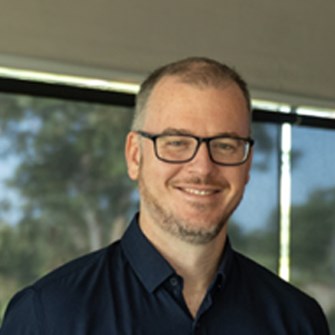
Dr Wayne Loudon
Dr Wayne Loudon is a critical care paramedic, researcher, and leader in prehospital acute stroke care, committed to advancing clinical practice and improving patient outcomes. Wayne has been instrumental in shaping paramedic education and clinical protocols, with a particular focus on enhancing prehospital stroke care…Read more Read lessDr Wayne Loudon is a critical care paramedic, researcher, and leader in prehospital acute stroke care, committed to advancing clinical practice and improving patient outcomes. Wayne has been instrumental in shaping paramedic education and clinical protocols, with a particular focus on enhancing prehospital stroke care systems.
His PhD research, centered on the analysis of complex clinical datasets, has driven evidence-based changes within prehospital care. This work has resulted in the development of new protocols, guidelines, and educational programs to improve stroke management before hospital arrival. Wayne is deeply involved in research across the full spectrum of prehospital practice.
Passionate about evolving stroke care, Wayne collaborates closely with healthcare and research stakeholders to advance initiatives that better equip prehospital clinicians through innovative research and education.
-
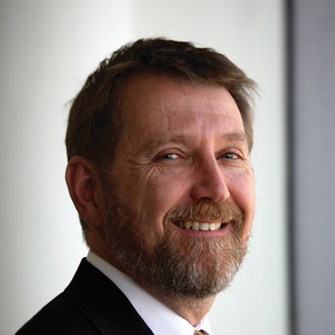
Professor Nigel Stocks
Professor Nigel Stocks is Head of the Discipline of General Practice at the University of Adelaide. He is a general practitioner in the Adelaide Hills and public health physician. He is an experienced primary health care researcher who has conducted both qualitative and quantitative studies…Read more Read lessProfessor Nigel Stocks is Head of the Discipline of General Practice at the University of Adelaide. He is a general practitioner in the Adelaide Hills and public health physician. He is an experienced primary health care researcher who has conducted both qualitative and quantitative studies including RCT’s, cohort and observational studies, systematic reviews and meta-analyses. His main interests are chronic disease management in general practice, infectious disease and surveillance, prevention including immunisation, quality of life and health services research. He is Director of ASPREN, an Australian influenza/COVID/RSV general practice surveillance network.
